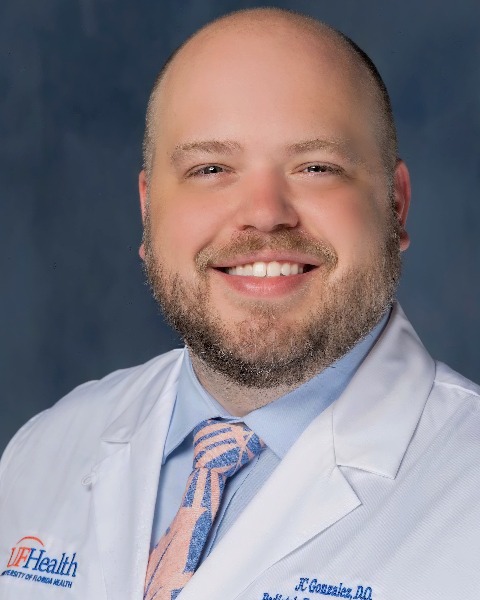Emergency Medicine
Session: Emergency Medicine 1 Works in Progress
WIP 108 - Parental preferences to Pediatric Emergency Department discharge medications
Friday, May 3, 2024
5:15 PM - 7:15 PM ET
Poster Number: WIP 108
Publication Number: WIP 108.689
Publication Number: WIP 108.689

Juan C. Gonzalez, Jr., DO (he/him/his)
Pediatric Emergency Medicine Fellow
University of Florida College of Medicine
Gainesville, Florida, United States
WIP Presenting Author(s)
Background: After an emergency department (ED) visit, one in three prescriptions are not filled. Limited access to pharmacies is a major contributing factor, especially as ED visits often occur at times when pharmacies are closed. As a result, even well-resourced communities are effectively pharmacy deserts at times when patients are discharged from the ED. Alternative methods of accessing prescription medications after ED discharge, such as dispensing prescription medications in the ED, have been proposed, yet to successfully and equitably implement such services, there is a critical need to understand caregiver perceptions.
Objective: We aim to assess caregiver attitudes towards alternative methods of receiving medications after ED discharge.
Design/Methods: This cross-sectional survey is being conducted in a single academic pediatric ED with no 24-hour pharmacy in an 80-mile radius. The survey, developed by a physician and pharmacist team with expertise in pediatric emergency medicine, health equity, and medication access has 18 close-ended questions assessing preferences for obtaining discharge medications (at a local retail pharmacy, through an ED-based self-service kiosk, or delivered to the bedside by hospital pharmacists) and barriers faced in accessing prescribed medications. Using questions derived from existing screening tools, participants are also asked to select social determinants of health that they perceive as impacting their access to prescription medications after an ED visit. We are approaching a convenience sample with a goal of 200 unique responses through 2023. Eligible participants are approached during the ED visit at times of research team availability (days, nights, and weekends) to complete the survey electronically in English or Spanish or verbally with the researcher through a professional interpreter. We will analyze data with descriptive statistics and we will use chi square to compare findings between subgroups. This project met exempt determination by the University of Florida Institutional Review Board.
